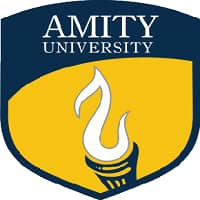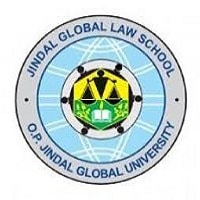VGU, Jaipur | Law Admissions 2025
Admissions open for 5 year Integrated LLB & LLB programs | Approved by Bar Council of India
BSL LLB full form is Bachelor of Socio-Legal Science and Bachelor of Legislative Law. The course provides professional training to become a lawyer. One can either pursue litigation, set up their practice, or work for a corporation as legal counsel. The syllabus for this law course ties together the knowledge of the legal system of India with its social system.
To be eligible for the course, candidates should have completed 10+2 from a recognised institute in India. Once fulfilling the eligibility criteria, candidates can apply for the admission procedure. BSL LLB runs on a semester system which combines theoretical studies, along with moot court training, rigorous fieldwork, and paper presentations. The social science aspect of the BSL LLB degree includes topics such as human rights studies, social justice, public policy, environmental studies, and much more.
BSL LLB stands for Bachelor of Social-Legal Sciences and Bachelor of Legislative Law. Many students prefer the course instead of pursuing a traditional B.A. along with their law degree. The BSL LLB is a five-year degree course that can be undertaken right after the 10+2. After graduation, candidates can become lawyers or pursue similar or related disciplines.
| Particulars | Details |
|---|---|
Course Name | Bachelor of Socio-Legal Sciences and Bachelor of Law |
BSL LLB Course Level | Undergraduate |
BSL LLB Course Duration | 5 years |
BSL LLB Eligibility Criteria | 10+2 from a recognised board |
BSL LLB Entrance Exams | CLAT, AP LAWCET, MHT CET, TS LAWCET |
BSL LLB Fees for the entire duration | Rs. 20,000 to Rs. 5 lakhs |
BSL LLB Average Salary | Rs. 7.0 LPA |
BSL LLB Job Profiles | Lawyer, Legal Advisor, Professor, Advocate |
BSL LLB Employment Areas | Corporate Houses, Consultancy, Government Agencies, Law Firms, Colleges & Universities |
BSL LLB Top Recruiters | Khaitan & Co., Deloitte, J Sagar Associates, Economic Laws Practice, EY, Desai & Diwanji |
BSL LLB course fees are influenced by various factors. Government institutes are often less expensive as compared to private institutes. Fee details are decided by the affiliation of the colleges, depending on the facilities provided to the students. Candidates can check the course fees either on the website of the provider or by contacting the provider. The average course fees for BSL LLB range from Rs. 20,000 to Rs. 5 Lakhs.
Studying a BSL LLB integrated course has multiple advantages for the graduates. The course integrates legal subjects along with non-legal subjects such as Political Science, Sociology, and History to provide a strong understanding of the social aspects of various laws. Students will also be able to save an academic year, as pursuing both degrees separately will require at least 6 years.
BSL LLB eligibility criteria are set by the governing body of the institutes and it varies across colleges. The eligibility criteria for international students will also be different from Indian residents. Listed in the table below is the general information about the BSL LLB course followed by many colleges and educational information for admission to the BSL LLB course.
| Eligibility Parameters | Details |
|---|---|
| Educational Qualification | 10+2 in any stream (Science, Commerce, Humanities, and Arts) from a recognised institute in India |
| Minimum aggregate score | 50-60 per cent (5-10 per cent relaxation for candidates belonging to the reserved categories) |
| Age limit | No maximum age limit |
Students who wish to pursue BSL LLB, need to go through certain application or admission guidelines specified by the college. The admission procedure for enrollment for BSL LLB may vary from state to state. Several states and universities conduct their specific entrance examinations to provide admissions to individuals in colleges falling under their region.
Step 1- Eligibility criteria
Students should have met the eligibility requirements of the course before applying for admission.
Step 2- Online application form
To register themselves, candidates should fill out the online application form. Those who are unable to access the form on the website can also visit the admission department of the provider and get a physical application form.
Step 3- Entrance examinations
BSL LLB admissions are generally based on merit scores. Candidates who meet the merit requirements are provided admissions.
Step 4- Group Discussion and Personal Interview
Apart from entrance examinations, many colleges also conduct group discussion sessions and personal interviews to screen the most deserving candidates.
Step 5- Pay the course fees and submit relevant documents
Shortlisted candidates are advised to pay the course fees and submit relevant documents to conclude the admission procedure.
Below are some of the top entrance examinations for the BSL LLB course. Students can visit the official website of the respective institute to learn more about course details.
| Exam Name | Conducting Body | Exam Schedule |
|---|---|---|
CLAT | Consortium of NLUs | CLAT Exam Schedule |
AP LAWCET | Acharya Nagarjuna University, Guntu | AP LAWCET Exam Schedule |
MH CET Law | Directorate of Higher Education Mumbai | MH CET Law Exam Schedule |
TS LAWCET: | Osmania University | TS LAW CET Exam Schedule |
The cut-off is the major aspect of minimum eligibility criteria set by colleges to select eligible candidates for providing admissions in the respective courses. The BSL LLB cutoff is announced every year to provide admissions. Candidates who scored within the announced cut-off are eligible for enrollment in the respective academic courses.
CLAT 2024 Expected Cut-Off for Top NLUs
Top 5 NLUs | Cut-off marks (expected) |
|---|---|
NLSIU Bengaluru | 85-90 |
NALSAR Hyderabad | 82-85 |
WBNUJS Kolkata | 80-84 |
NLU Jodhpur | 78-82 |
The BSL LLB syllabus consists of subjects ranging from the basics of English to social sciences to Jurisprudence. A law student enters a world of knowledge that is both diverse and engaging. Students are required to study forty subjects and clear examinations. Given below are the BSL LLB subjects for the entire course duration.
Semester 1 | Semester 2 |
General English - I | General English II |
Economics | Political Science I |
History | Sociology |
Semester 3 | Semester 4 |
Political Science II | Legal Language |
Political Science III (International Relations and Organization) | Legal History (History of Courts, Legislature and Legal Profession in India) |
Law of Contract - I | Law of Contract II |
Semester 5 | Semester 6 |
Law of Crimes | Law of Torts & Consumer Protection Act |
Family Law I | Constitutional Law |
Labour Laws | Family Law II |
a) Trust, Equity and Fiduciary Relationships b) International Economic Law c) Woman and Law & Laws Relating to Child d) Criminology & Penology | Practical Training III (Professional Ethics Accountancy for Lawyers and Bar Bench Relations) |
Semester 7 | Semester 8 |
Law of Evidence | Jurisprudence |
Environmental Law (including Laws for the Protection of Wildlife and Other Living Creatures including Animal Welfare) | Property Law including the Transfer of Property Act and Easement Act |
Human Rights and International Law | Practical Training II |
Arbitration, Conciliation and Alternative Disputes Resolution System | - |
Semester 9 | Semester 10 |
Code of Civil Procedure and the Limitation Act | Code of Criminal Procedure, Juvenile Justice Act, and Probation of Offenders Act |
Administrative Law | Company Law |
Interpretation of Statute | Practical Training I |
Land Laws | Drafting, Pleading, and Conveyancing |
A BSL LLB student can work as an intern during college breaks with a law firm. If the student has passed his/her second-year examination, these internships are more likely to be paid. Here are the initial expectations from a legal intern:
After receiving a BSL LLB course, students have a host of career options to choose from. Some of the most popular career prospects are-
Independent Litigator/Lawyer: A professional with a spanking new BSL LLB degree can set up their practice and represent clients in civil as well as criminal matters. As a litigator, you will present arguments in the court of law and assist in out-of-court proceedings and settlements.
Solicitor: A law degree teaches you about laws like taxation law, family disputes, etc. Solicitors generally specialise in one area like taxation or property disputes and offer legal advice to individuals as well as corporations. This role is more of a legal counsel than a litigator.
Advocate: Advocates are primarily involved in drafting contracts and interpreting them. They also conduct a tonne of research and gather evidence on behalf of their client.
Legal Advisor: If you do not like the courtroom, you can always take up a desk job by specialising in, say, corporate law, and can work in an organisation's legal department.
Teacher: After completing their five years of a rigorous professional law degree, a student becomes eligible to take lectures at the college level.
There are many law firms where you must apply if you wish to be a litigator. If you want to work as a corporate lawyer, then you can apply to any number of corporations or M.N.C.s out there. Below are some of the top BSL LLB recruiters who hire professionals with legal expertise.
The median starting salary for a fresh-out-of-college lawyer can range anywhere between 6 lakhs per annum to Rs. 14 lakhs per annum. The better the college, the higher the BSL LLB salary. Also, if you get selected by one of the top litigation firms, your salary will likely be even higher than what is listed here.
Often graduates who work in legal departments of corporations get a lower beginning salary than lawyers working at a litigation firm. Below is the data of the average BSL LLB salary package, along with the respective job roles.
Job Profile | Average Salary |
|---|---|
Lawyer | Rs. 7.0 LPA |
Legal Advisor | Rs. 6.07 LPA |
Professor | Rs. 9.94 LPA |
Advocate | Rs. 5.08 LPA |
Source: Payscale
Graduating with a BSL LLB degree opens up a wide range of career scopes in both the public as well as private sectors. Below are some of the employment areas that sought-after legal services.
Only a few private colleges offer BSL LLB dual degree programmes. Private colleges are generally expensive as compared to government institutes due to the facilities offered. In the table below, we have mentioned the top private BSL LLB colleges in India along with their respective fees.
Bachelor of Socio-Legal Sciences and Bachelor of Law (BSL LLB) provide promising career opportunities in various fields, which is why it can be a perfect choice for a degree. However, candidates' interests and life goals matter the most when it comes to choosing a domain of education.
An L.L.B. degree is a three-year programme offered after you have finished your bachelor degree. However, a BSL LLB degree can be pursued right after 10+2.
Both degrees make you a lawyer in five years. The only difference is that the course curriculum for the non-legal subjects is slightly different in a BSL LLB programme.
No, you have to put in five full-time years to complete a BSL LLB degree the same as you would while pursuing a B.A. L.L.B. degree.
There is no maximum age limit to pursue any law degree programme in India, as long as you meet the other mandated eligibility requirements.
Given that there are countless court cases filed every day in the country, and the resolution takes a very long time, there is tremendous scope for lawyers in India.
You can become a judge after finishing your law degree. However, you will need to give a series of examinations for becoming a judge. Just by completing this degree, you cannot become a judge.
Yes, there may be scholarships available, especially for the economically weaker sections of the society. However, specific scholarship information can be cleared at the time of admission as each institute may have a different policy around handing out benefits.
While joining a coaching class is a popular way to begin your journey for clearing CLAT, you can also download online study material; lots of it is freely available on the internet and also appears for mock tests. Search for exam content subject by subject – start with scouting legal aptitude and G.K. section papers and move on to the English and Math sections.
Yes, all NLUs accept CLAT scores except for N.L.U. Delhi, as it conducts its own entrance exam.
There are a total of 22 NLUs in the country with the following being the top ones: National Law School of India University, Bangalore, National Law University, Delhi, NALSAR, Hyderabad, National Law Institute University, Bhopal, and National Law University, Jodhpur.
Hello aspirant,
MGM law college of Mumbai is one of the best law college of Mumbai providing bsl LLB course. Persuing bsl llb course from MGM law college is really a very good option. To know more information about the college you can visit our site by clicking on link given below.
https://www.careers360.com/colleges/mgm-law-college-nerul
Thank you
Hope this information helps you.

700+ Campus placements at top national and global law firms, corporates, and judiciaries

Ranked #1 Law School in India & South Asia by QS- World University Rankings | Merit cum means scholarships | Regular Admissions Deadline: 30th Apr'25

Ranked #1 Among all Private Indian Universities in QS Asia Rankings 2025 | Scholarships worth 210 CR
100+ Industry collaborations | 10+ Years of legacy
Ranked #28 amongst Institutions in India by NIRF | Ranked #1 in India for Academic Reputation by QS University Rankings | 16.6 LPA Highest CTC | Last Date to Apply: 28th April
Ranked 1 st among Top Law Schools of super Excellence in India - GHRDC | NAAC A+ Accredited | #36 by NIRF